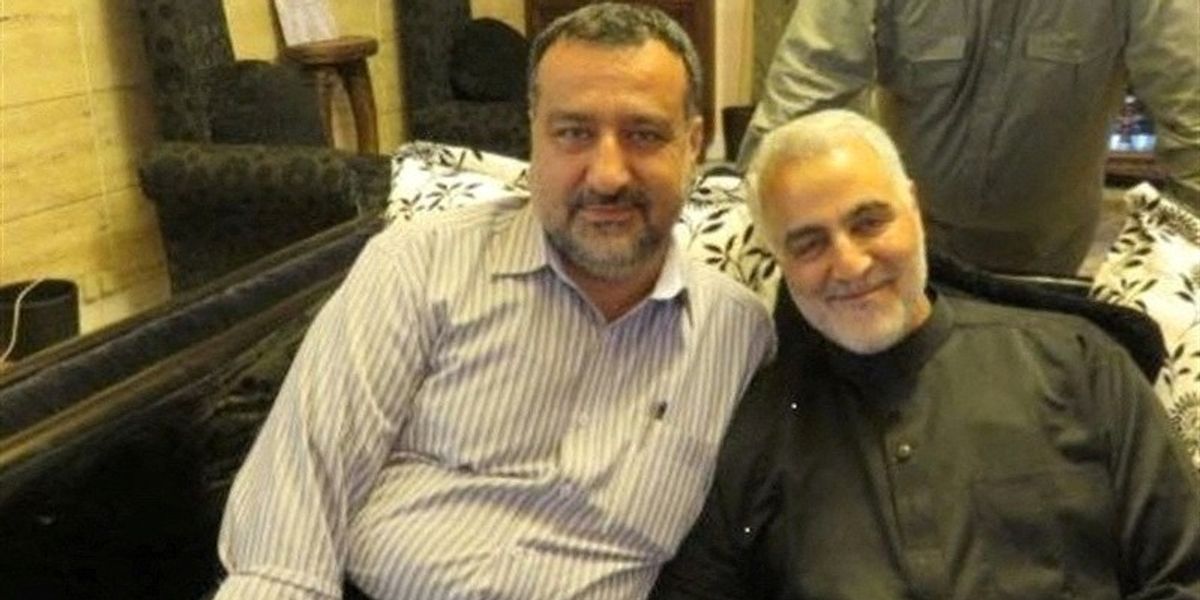Iran’s top commander in Syria, Seyed Razi Mousavi, was assassinated Sunday by an Israeli airstrike in a Damascus neighborhood, according to Iran’s official news agency IRNA and Britain-based opposition war monitor the Syrian Observatory for Human Rights.
This has led Tehran to call for reprisals, ratcheting up fears that this might be the match that ignites a wider Middle East war.
Syria state news did not issue a statement, and Israel has declined to comment.
Israel either killed Mousavi as a warning to Iran — given Tehran’s support for the Houthis’ attacks on ships in the Red Sea — or as a provocation to beget an Iranian response that would give Israel the pretext to enlarge the war, or as a preparatory move to enlarge the war regardless of Iran’s response. Either one points to trouble.
The action preceded U.S. airstrikes in Northern Iraq that killed a number of Shia militants linked to Kataib Hezbollah, a Shia armed group and its affiliates, presumed to be backed by Iran. The strikes, ordered by Biden, were in retaliation for an attack on U.S. troops there that led to the injuries of three American service members, including one in critical condition, according to the Pentagon.
It is very likely that Israel is behind the assassination of Mousavi since it is the only power with both a motive and capacity to pull off such a killing — not to mention a long history of assassinating Iranian operatives. The U.S. has the capacity but not necessarily the motive. The analysis below rests on the rather safe assumption that Mousavi was assassinated by Israel.
U.S. intelligence believes that Iran has been actively involved in the Houthi movement’s targeting of ships in the Red Sea, which has effectively closed the Bab el-Mandeb Strait for Israel and cost the Israeli economy billions of dollars. The Houthis insist they will continue the attacks — despite threats of retaliation from the US — until Israel ceases its bombardment of Gaza.
Israel of course refuses, and Biden is loath to press Israel for a ceasefire. From Israel’s perspective, Iran is not paying a price for its alleged role in the Red Sea attacks. The assassination may, as a result, be a warning to Iran that Israel has the capacity and willingness to exact a price from Iran — even in areas where the Iranians may have presumed that they are safe.
In a second scenario, the assassination may be a deliberate provocation to engender an Iranian response that would give Israel the pretext to enlarge the war. While the Biden administration has given Israel the green light to bomb Gaza to smithereens, Biden opposes an expansion of the war since that very likely could drag the U.S. into it.
The debate inside the Israeli government is increasingly leaning toward expanding the war. They have already mobilized more than 300,000 troops, and there is a growing belief in Israel that it simply is intolerable for Israel to live next to Hezbollah.
Israel thought it could manage the threat from Hamas — and they couldn’t. Even though it wasn’t Hezbollah that attacked Israel on Oct. 7, the Israeli argument is that next time it might be Hezbollah, and as a result, Israel has no choice but to expand the war. But unless there is an attack from Iran or Hezbollah itself, the U.S. may continue to oppose such a move.
But the assassination of Mousavi may cause Iran to retaliate against Israel via Hezbollah, the reasoning goes, and Israel can then use Hezbollah’s action as a pretext to not only expand the war to Lebanon — but also force the U.S. to go along with it.
There is also a third explanation. According to Amwaj Media, Mousavi was in charge of facilitating the entry of Iran-led forces and arms shipments to Syria as well as Lebanon’s Hezbollah movement. If Israel intends to attack Lebanon, taking out Mousavi could be a logical first step to disrupt the arming of Hezbollah as well as its supply lines. As such, the assassination may be a preparatory move to enlarge the war regardless of Iran’s response to the killing of Mousavi.
All of these scenarios point to one undeniable reality: As long as Biden refuses to pressure Israel to accept a ceasefire in Gaza, tensions in the region will continue to rise and the Middle East will gravitate towards a regional war that very likely will engulf the U.S. as well. Biden may think that he can control these events and allow Israel to slaughter the people in Gaza while keeping a lid on the escalation risk.
He is likely wrong — and the American people may soon find themselves in yet another unnecessary war in the Middle East because of Biden’s strategic incompetence.
- Bombing of Soleimani mourners in Iran kills over 100 people | Responsible Statecraft ›
- Iraqis: Don't use our country as a 'proxy battleground' | Responsible Statecraft ›
- Iran is waging its own war on terror | Responsible Statecraft ›
- Hezbollah leader ups ante after attack on Iranian consulate | Responsible Statecraft ›
- Israel can still drag the US into war with Iran | Responsible Statecraft ›
- Exploding Pagers in Lebanon: taste of what's yet to come? | Responsible Statecraft ›
- Is Israel expanding territorial control toward Syria? | Responsible Statecraft ›















